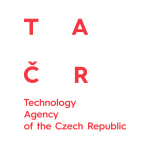Leader of consortium:
Members of the consortium:
Technical University of Liberec; AQUATEST Plc.; DEKONTA Plc.; GEOtest Plc.; MEGA Plc.; LAC Ltd.
Person responsible:
Doc. RNDr. Libor Machala, Ph.D.
Description:
Technologies based on (i) oxidation effect of compounds with high oxidation states of iron, (ii) controlled catalyzed decomposition of hydrogen peroxide, and (iii) photocatalytic degradation of pollutants using TiO2 immobilized on suitable substrates for environmentally friendly treatment of surface, waste and ground water and soils. Technologies based on application of ferrates (compounds of iron in high oxidation states FeIV, FeV, FeVI) have enormous application potential for combined possibility of oxidative and precipitation effect. It is structure of resulting ferric hydroxide with high efficiency, to which are built e.g. heavy metals and arsenic. These materials are thus broadly applicable to removal of oxidatively degradable organic compounds but also heavy metals, cyanides, arsenic or microcystin. Among other oxidation methods is important controlled decomposition of hydrogen peroxide using heterogeneous catalysts. These methods allow controlling kinetics of decomposition of hydrogen peroxide, which is important particularly in oxidative technologies for treatment of ground water as well as waste water. These heterogeneously catalyzed processes are slow compared to classical Fenton reaction with homogeneous catalysis, which is in groundwater treatment technologies desirable.
These technologies are developed and optimized within the work package; crucial part of the package is verification of technologies at various locations. UPOL is in charge of work coordination, laboratory development and optimization of clean phases preparation in laboratory conditions including surface stabilization, and complex size, morphological, chemical, structural and surface characterization of prepared materials. LAC is responsible for transfer of technologies to pilot plant and operational scale. The company develops equipment for production of FeIV/ FeV including stabilized materials and other catalysts, and also contributes to design and implementation of equipment for application FeIV / FeV in surface and waste water treatment technologies. TUL is responsible for testing of all materials developed in terms of reactivity, efficiency of effects on different types of contaminants, kinetics monitoring and long-term effect on ground water. Furthermore, TUL contributes to modeling of processes in ground water and testing of migration properties. Five other partners (AECOM CZ, GEOtest, DEKONTA, AQUATEST, MEGA) verify technologies and materials developed in various types of water (ground water, surface water, waste water), at a variety of locations with different types of pollution in various geological environments. These companies are also involved in implementation of technology in domestic and global markets.
The main objective of this work package is development of new materials and environmentally friendly oxidative technologies for water and soil treatment with subsequent implementation of these technologies on Czech and global markets.
Outputs:
- Development of pilot production of ferrates (FeIV / FeV) of alkali metals and their surface-stabilized equivalents for treatment of drinking, surface and waste water.
- Development of technology of preparation and use of nanocatalysts for catalytic decomposition of hydrogen peroxide and subsequent testing in in water treatment technologies.
- Development of technology of photocatalytic water treatment using TiO2 immobilized on magnetic and nanofiber substrates.


